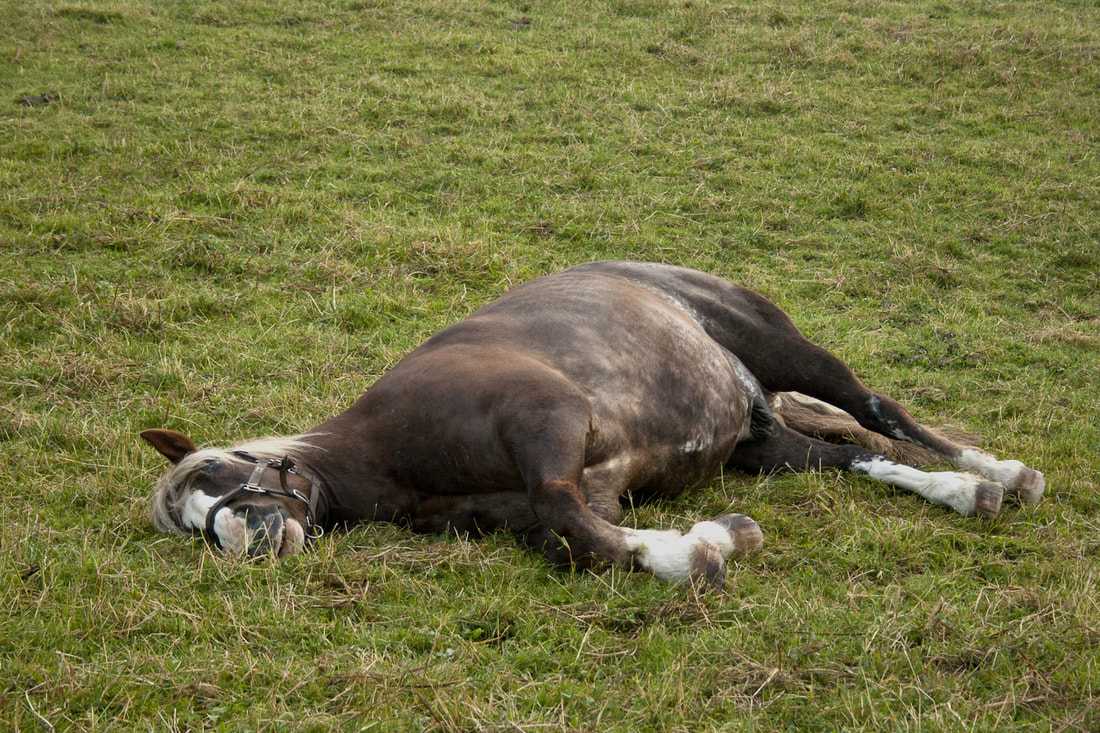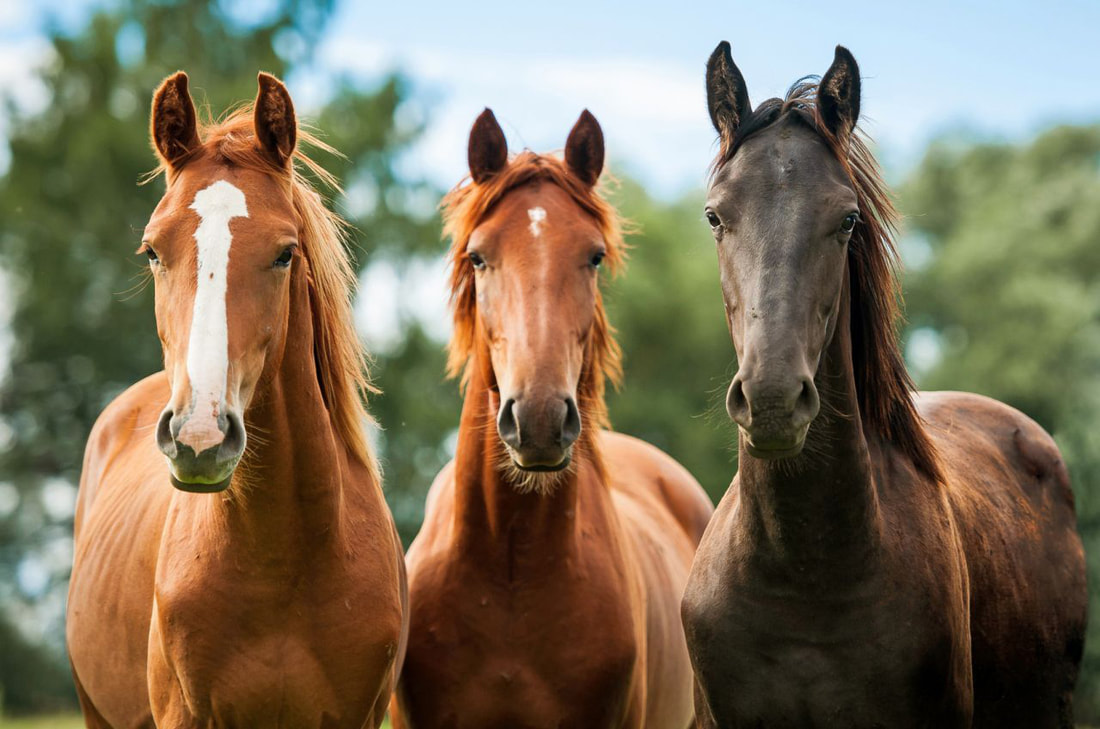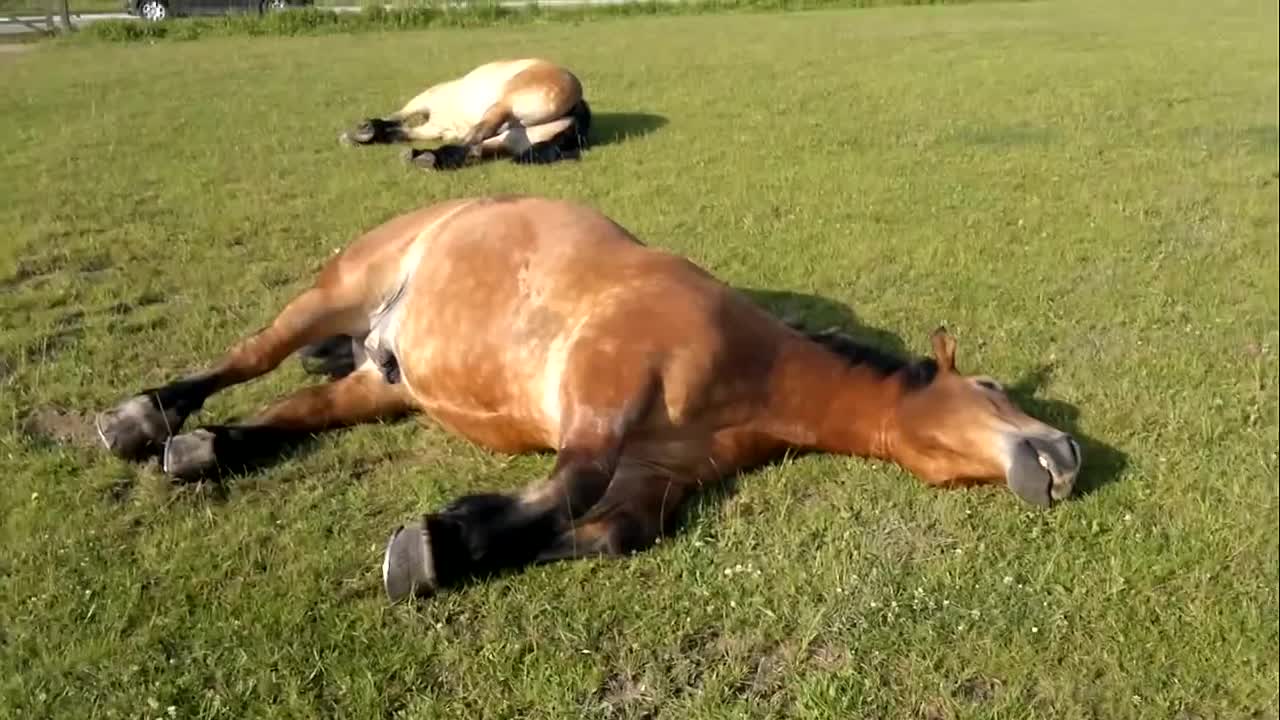By Maxmilian Wechsler
Thai media first reported the mysterious deaths of 42 horses in Pak Chong district of Nakhon Ratchasima province on March 27. The deaths were soon attributed to the African horse sickness (AHS) virus. News of the outbreak spread quickly around the world, causing grave concern in several countries.
In fact, it was back in February 24 when the first horse died from this viral disease. The death toll in 12 Thai provinces now stands at 550 and counting.
Coming as it does in the midst of the global COVID-19 pandemic, the appearance of AHS is yet another source of public concern. Fortunately, unlike COVID-19 it poses no danger to humans. While the rate of new AHS infections and deaths has gone down significantly, experts caution that for now emergency measures put in place to halt the spread of the virus in Thailand must remain in place.
The World Organization for Animal Health (OIE), with headquarters in Paris, France, was notified of the emergence of the AHS virus in Thailand on March 27 by Dr Sorravis Thaneto, Director General of the Department of Livestock Development (DLD), Ministry of Agriculture and Cooperatives.
Dr Sorravis, who supplied the OIE with vital information, has since been sending regular weekly updates to the organization.
Dr Sorravis told reporters on May 15 that the first horse death occurred on February 24, but horse owners and veterinarians did not report it to the livestock department. “Once informed, we immediately sent the team to investigate the incident and collect samples on March 26. Then we enforced restrictions on the movement of equine species and introduced biosecurity measures, including vaccination,” he said.
He also mentioned that his department acquired 4,000 doses of AHS vaccine from Maxwin, an animal feed company, and has recently imported the next batch.
“There are around 13,000 horses nationwide. We have vaccinated nearly 4,000 horses and we inoculate another 4,000 in the epicenter of the disease and its 50-km radius,” added Dr Sorravis.
He assured that the investigation must be thorough and the department needs more information to determine the cause of the AHS outbreak.
In fact, it was back in February 24 when the first horse died from this viral disease. The death toll in 12 Thai provinces now stands at 550 and counting.
Coming as it does in the midst of the global COVID-19 pandemic, the appearance of AHS is yet another source of public concern. Fortunately, unlike COVID-19 it poses no danger to humans. While the rate of new AHS infections and deaths has gone down significantly, experts caution that for now emergency measures put in place to halt the spread of the virus in Thailand must remain in place.
The World Organization for Animal Health (OIE), with headquarters in Paris, France, was notified of the emergence of the AHS virus in Thailand on March 27 by Dr Sorravis Thaneto, Director General of the Department of Livestock Development (DLD), Ministry of Agriculture and Cooperatives.
Dr Sorravis, who supplied the OIE with vital information, has since been sending regular weekly updates to the organization.
Dr Sorravis told reporters on May 15 that the first horse death occurred on February 24, but horse owners and veterinarians did not report it to the livestock department. “Once informed, we immediately sent the team to investigate the incident and collect samples on March 26. Then we enforced restrictions on the movement of equine species and introduced biosecurity measures, including vaccination,” he said.
He also mentioned that his department acquired 4,000 doses of AHS vaccine from Maxwin, an animal feed company, and has recently imported the next batch.
“There are around 13,000 horses nationwide. We have vaccinated nearly 4,000 horses and we inoculate another 4,000 in the epicenter of the disease and its 50-km radius,” added Dr Sorravis.
He assured that the investigation must be thorough and the department needs more information to determine the cause of the AHS outbreak.
African Plague
AHS, also called African Plague, is endemic in sub-Saharan Africa and Yemen, from where it has occasionally spread to North Africa, Europe and other areas of the Middle East. The most recent outbreak in Europe was in Spain from 1987-1990 and Portugal in 1989. The sickness was apparently introduced by zebras imported to a Spanish zoo and then spread throughout the two countries. Around 3,000 animals, mostly riding horses, died in the outbreak. AHS is an insect-borne viral disease spread by various vectors including tiny blood-sucking midges of the genus Culicoides, as well as certain mosquitos.
AHS affects all members of the Equidae family (horses, mules, donkeys, zebras and potentially camels). Dogs can also become sick by eating meat from an infected animal. Horses are most susceptible to the virus, with more than 90% dying after infection.There are nine known serotypes of the virus.
Symptoms of AHS include a fever exceeding 38.5 degrees Celsius, stuffy snout with a discharge, breathing difficulties, pale gums, drooling, fatigue, severe depression, coughing, redness or bleeding in the eyes, swollen faces and finally sudden death.
Horses at Pak Chong were also noted to have a severe loss of appetite.
AHS affects all members of the Equidae family (horses, mules, donkeys, zebras and potentially camels). Dogs can also become sick by eating meat from an infected animal. Horses are most susceptible to the virus, with more than 90% dying after infection.There are nine known serotypes of the virus.
Symptoms of AHS include a fever exceeding 38.5 degrees Celsius, stuffy snout with a discharge, breathing difficulties, pale gums, drooling, fatigue, severe depression, coughing, redness or bleeding in the eyes, swollen faces and finally sudden death.
Horses at Pak Chong were also noted to have a severe loss of appetite.
Defense measures
The current outbreak marks the first time AHS has been confirmed in Thailand. After horses began dying in Pak Chong in February, the DLD conducted an investigation and identified AHS as the cause. Together with Thailand Equestrian Federation (TEF), the DLD immediately set up a quarantine zone with travel restrictions and an online site for horse owner based disease reporting. It was immediately suspected that zebras might be the source of the outbreak. They DLD and TEF asked everyone in Thailand who owns or handles zebras to cooperate in measures to prevent the spread of the virus.
The DLD sent out units to monitor horses and isolate those that appeared sick. Transportation of horses or other members of the horse family was forbidden within a150 kilometer radius of the initial outbreak.
Other instructions for preventative measures have been given, such as putting mosquito nets in place to curtail movement of insects that may carry the disease, destroying horse manure, eradicating breeding grounds for insects, disinfecting all stables and transportation equipment, and banning the use of water from public spaces for horses’ consumption.Horse owners and handlers are required to immediately report any sickness or sudden deaths of horses to the DLD.
The Ministry of Agriculture issued an order on April 8 banning the movement of all horses in the country for 90 days. The ministry also instructed the Livestock Department and the National Parks, Wildlife and Plant Conservation Department to seek solutions to end the outbreak. The government has banned the import and export of horses, zebras and all related animals. Officials from the Nakhon Ratchasima provincial livestock development has been assigned to spray disinfectant at the 29 horse farms, which have 654 horses, in Pak Chong district, and all other farms in Muang district. Live stock officers have been collecting samples from the same family such as donkeys, zebras and camels at Nakhon Ratchasima zoo for testing. All farms in Nakhon Ratchasima province have given full cooperation to provincial authorities by not moving their animals
According to Phasawi Somchai, chief of Nakhon Ratchasimas’ livestock development office there are 2,036 registered horses in the province.
The DLD sent out units to monitor horses and isolate those that appeared sick. Transportation of horses or other members of the horse family was forbidden within a150 kilometer radius of the initial outbreak.
Other instructions for preventative measures have been given, such as putting mosquito nets in place to curtail movement of insects that may carry the disease, destroying horse manure, eradicating breeding grounds for insects, disinfecting all stables and transportation equipment, and banning the use of water from public spaces for horses’ consumption.Horse owners and handlers are required to immediately report any sickness or sudden deaths of horses to the DLD.
The Ministry of Agriculture issued an order on April 8 banning the movement of all horses in the country for 90 days. The ministry also instructed the Livestock Department and the National Parks, Wildlife and Plant Conservation Department to seek solutions to end the outbreak. The government has banned the import and export of horses, zebras and all related animals. Officials from the Nakhon Ratchasima provincial livestock development has been assigned to spray disinfectant at the 29 horse farms, which have 654 horses, in Pak Chong district, and all other farms in Muang district. Live stock officers have been collecting samples from the same family such as donkeys, zebras and camels at Nakhon Ratchasima zoo for testing. All farms in Nakhon Ratchasima province have given full cooperation to provincial authorities by not moving their animals
According to Phasawi Somchai, chief of Nakhon Ratchasimas’ livestock development office there are 2,036 registered horses in the province.
Deepest sympathyThe Horse website quotes TEF veterinary adviser Dr Metha Chanda as saying: “Our deepest sympathy goes out to those who have lost horses due to this terrible virus. We are monitoring the situation closely and we will continue to update everyone and follow all protocols in order to best protect all horses in Thailand.”
Dr Chanda added that the reaction of the TEF to the AHS outbreak has been swift, and all members of the organization were instructed to restrict horse movements and follow all relevant measures advised by the DLD. It was Dr Chandra that informed International Equestrian Federation for Sports (FEI) veterinary director Dr Göran Akerström on March 28 of the outbreak and its confirmation by the DLD. The FEI is located in Lausanne, Switzerland. |
On March 31, provincial livestock development chief Pasawee Somjai confirmed that tests on tissue samples of 73 horses that died in Pak Chong district revealed AHS as the causative agent. The tests were done by the National Institute of Animal Health in Bangkok. Mr Pasawee said it was still not known how the disease came to be in Pak Chong district.
Dr Nopadol Saropala, a ranch owner in Pak Chong district, an obstetrician and gynaecologist at Bumrungrad International Hospital, is among those who believe the disease was brought into Thailand by zebras that entered the country at the beginning of the year. Some horse farm owners have also told the DLD that they suspect zebras imported from Africa are the most likely source.
Dr Saropola closed his business and temporary suspending service like horse riding training. The death of his 18 horses has cost him more than 10 million baht.
One other horse farm owner in Pak Chong district said that AHS killed 60 out of his 148 racehorses costing him over 30 million baht.
Dr Nopadol Saropala, a ranch owner in Pak Chong district, an obstetrician and gynaecologist at Bumrungrad International Hospital, is among those who believe the disease was brought into Thailand by zebras that entered the country at the beginning of the year. Some horse farm owners have also told the DLD that they suspect zebras imported from Africa are the most likely source.
Dr Saropola closed his business and temporary suspending service like horse riding training. The death of his 18 horses has cost him more than 10 million baht.
One other horse farm owner in Pak Chong district said that AHS killed 60 out of his 148 racehorses costing him over 30 million baht.
Calls for help
| On May 5 renowned Thai veterinarian Dr Siraya Chunekamrai said help from local and international sources is urgently is needed to contain what she called a horse welfare disaster, adding that it had already killed 500 horses in Thailand and has the potential to kill thousands more. The equine specialist on the team leading Thailand's response told VIN News Service that the horse mortality rate so far stands at 95%, indicating that this is a particularly deadly strain. Dr Siraya is chairwoman of the Lampang Pony Welfare Foundation and vice-president of the World Small Animal Veterinary Association. She is treating many affected animals herself and also leading vaccination efforts by equine veterinary volunteers in the country. |
Dr Sraya has launched an international fundraising appeal to support the purchase of essential tools in the fight against AHS, including nets to protect horses from the midges that spread the disease. “We would be grateful for any donations to support our work at this difficult and heartbreaking time,” she said.
The International Coalition of Working Equids (ICWE) has offered support to owners of working horses, donkeys and mules in Thailand.
The International Coalition of Working Equids (ICWE) has offered support to owners of working horses, donkeys and mules in Thailand.
International alarm
On March 27, the OIE suspended Thailand’s status as an AHS-free country on March 27. Animal welfare officials from the United Kingdom down to Australia have expressed alarm about the prospect that transmission of the deadly virus might savage their multibillion-dollar equine industries. Neighboring countries in Southeast Asia are particularly concerned.
Simon Carpenter, an entomologist at the Pirbright Laboratory in the United Kingdom, said: “A sustained, persistent outbreak of [AHS] that spreads to other countries would be devastating, not only to the racing industry and companion animals, but also to some of the poorest workers in the region who rely on working horses, donkeys, and mules.”
Australian authorities are concerned about the possibility that, if the outbreak is not controlled, infected wind-borne midges might blow south across waterways and light on the herds of island nations, and gradually island-hop their way all the way to Australia. The country has more than one million racing, sport, and feral horses. Chief Veterinary Officer Mark Schipp said Australia is engaging with other countries to develop a regional response to the outbreak.
According to a Reuters report, China’s agricultural ministry is taking samples from horses along its southern border to check for AHS. Cambodia has begun preventive measures along its western border with Thailand. Cambodian officials continue to monitor the country’s borders and have started netting in areas bordering Thailand, according to members of the Cambodian Pony Welfare Organization. Dr Siraya said horse farms in Sa Kaew, Thailand’s eastern-most province, have been protected with nets and all horses in the province have been vaccinated.
The US Department of Agriculture’s Animal and Plant Health Inspection Service on March 31 placed restrictions on the importation of equine species from Thailand.
The International Coalition of Working Equids has responded to an outbreak of AHS by offering support for working equids and their owners.
Simon Carpenter, an entomologist at the Pirbright Laboratory in the United Kingdom, said: “A sustained, persistent outbreak of [AHS] that spreads to other countries would be devastating, not only to the racing industry and companion animals, but also to some of the poorest workers in the region who rely on working horses, donkeys, and mules.”
Australian authorities are concerned about the possibility that, if the outbreak is not controlled, infected wind-borne midges might blow south across waterways and light on the herds of island nations, and gradually island-hop their way all the way to Australia. The country has more than one million racing, sport, and feral horses. Chief Veterinary Officer Mark Schipp said Australia is engaging with other countries to develop a regional response to the outbreak.
According to a Reuters report, China’s agricultural ministry is taking samples from horses along its southern border to check for AHS. Cambodia has begun preventive measures along its western border with Thailand. Cambodian officials continue to monitor the country’s borders and have started netting in areas bordering Thailand, according to members of the Cambodian Pony Welfare Organization. Dr Siraya said horse farms in Sa Kaew, Thailand’s eastern-most province, have been protected with nets and all horses in the province have been vaccinated.
The US Department of Agriculture’s Animal and Plant Health Inspection Service on March 31 placed restrictions on the importation of equine species from Thailand.
The International Coalition of Working Equids has responded to an outbreak of AHS by offering support for working equids and their owners.
Vaccinations
|
Vaccination programs began April 19, according to government reports to the OIE. The first horses to receive vaccines were animals used in the snake venom and rabies antidote development center of the Thai Red Cross Society in Phetchaburi province. A total of 560 Red Cross horses received priority vaccination because of their role in human medicine. The next day the Thai government began vaccinations of some 4,000 horses.
Some 11,800 horses in Thailand are owned by the private sector, kept mostly for racing and leisure riding by tourists and their owners. Thai veterinarians say all of these horses are at risk unless they are quickly vaccinated en masse. Thai media reported on May 20 that the DLD is ready to ramp up vaccinations for AHS at-risk zones such as Bangkok and neighboring provinces, to curb the spread of the disease. Dr Sorravis said on May 19 that the AHS outbreak has slowed. "Some of them [provinces] have not had any losses for three weeks. We can bring the plague under control. With a new batch of vaccines, we will begin inoculating the remaining horses soon,” he said following meeting with other officials to discuss anti-AHS measures in Bangkok and neighboring provinces. Dr Sorravis also pointed that so far no AHS cases have been reported recently in Bangkok and surround including Nonthaburi, Pathum Thani and Samut Prakan recently. It was reported on May 22 that an association of racehorse owners in Nakhon Ratchasima province took stand against an order by the DLD to get their horses vaccinated against AHS. |
Latest statistics According to the latest updates by the DLD/OIE, a total of 550 equidae (in all ten reports since March 27 the DLD/OIE has persisted in using this term, although it seems clear that in all cases there are referring to horses) have this far died in 12 provinces. Provincial totals are as follow: Ayutthaya 3, Chaiyaphum 1, Chachoengsao 2, Chonburi 5, Lopburi 1, Nakhon Nayok 2, Nakhon Ratchasima 436, Phetchaburi 40, Prachuap Khiri Khan 19, Ratchaburi 6, Sa Kaeo 3 and Saraburi 32. The apparent mortality of horses infected fluctuates from 74.42% to 100% depending on each of 12 provinces. In its last notification dated May 29, the DLD/OIE reported that 4,553 equidae had been vaccinated in Bangkok and 15 other provinces: Ang Thong 77, Ayutthaya 187, Bangkok 315, Chonburi 277, Lopburi 186, Kanchanaburi 20, Nakhon Pathom 10, Nakhon Ratchasima 908, Nonthaburi 5, Phatum Thani 138, Phetchaburi 1,001, Prachinburi 7, Prachuap Khiri Khan 392, Ratchaburi 397, Sa Kaeo 101 and Saraburi 532. Meanwhile, the TEF reports in its latest update dated May 24 that 547 horses have died in 12 provinces and 3,646 have been vaccinated. |
Sunthon Suwannachat, the acting president of the association, said members were holding out against the order because the department could not answer questions for the horse owners whether the vaccine works to prevent the disease or it might kill their horses.
“We have seen horses in Pak Chong district die after vaccination. Many horses have died. Because our horses have remained healthy, we believe we can prevent them from catching the disease. So we won’t get them vaccinated,” Mr Sunthon said.
He urged Prime Minister Prayut Chan-o-cha to tackle the root of the problem by bringing those who triggered this outbreak to justice.
“We have seen horses in Pak Chong district die after vaccination. Many horses have died. Because our horses have remained healthy, we believe we can prevent them from catching the disease. So we won’t get them vaccinated,” Mr Sunthon said.
He urged Prime Minister Prayut Chan-o-cha to tackle the root of the problem by bringing those who triggered this outbreak to justice.





 RSS Feed
RSS Feed
















